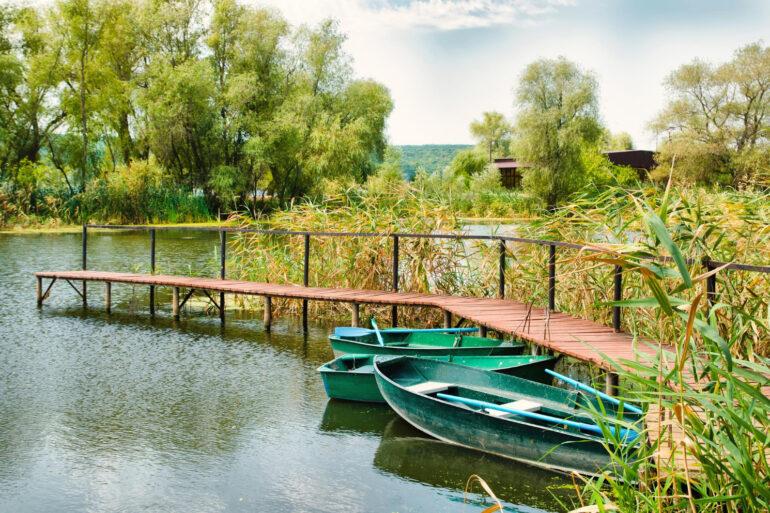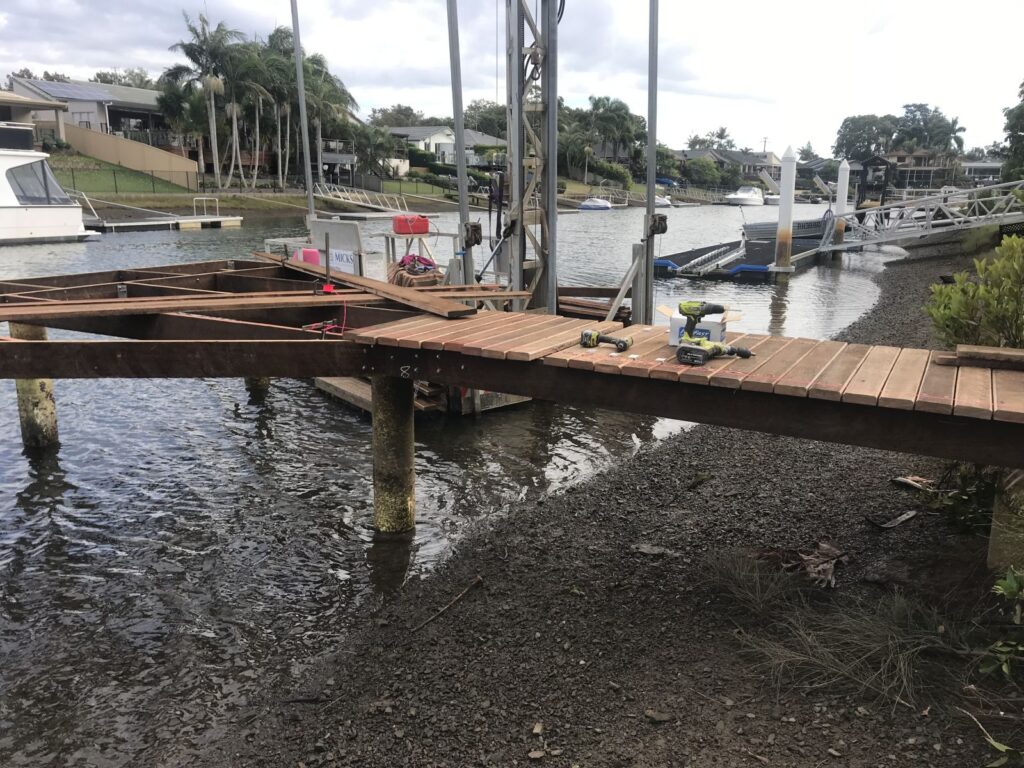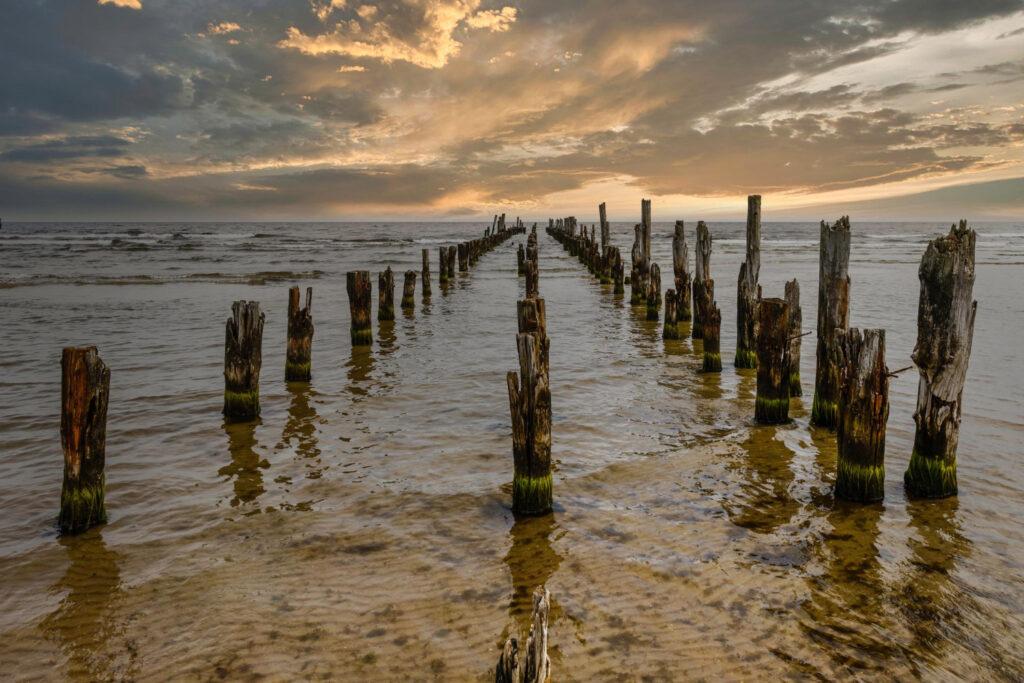
Are you a waterfront homeowner or landlord with a dangerously damaged jetty on your hands? If so, don’t panic. You’re not alone. We meet waterfront property owners in the same situation as you – with a damaged or ageing jetty that needs repairs and, in some cases, a major restoration. The good news is that there are experts who can help – including Micks Marine Maintenance.
For investment properties, landlords have a legal obligation to uphold, making jetty repairs a top priority. Even for homeowners, a damaged jetty can pose safety hazards and result in costly liability claims. That’s where Micks Marine Maintenance comes in.
So, what should you do if your jetty needs repairs? Here are some tips from the experts:
How do you repair and restore a jetty?

As any waterfront homeowner knows, your jetty is essential to enjoying your property to the fullest. However, jetties can be damaged by storms or age, so it’s vital to take action to repair and restore a jetty as soon as they show signs of damage. Otherwise, the damage will only get worse over time.
Several steps need to be taken to repair and restore a damaged or ageing jetty. First, assess the damage and determine what needs to be repaired. This may involve replacing rotten boards or reinforcing the structure with new supports. Once the repairs have been made, you can begin the restoration process. This may involve painting or staining the jetty to protect it from the sun and salt water. For detailed instructions, please read ‘How to Restore a Jetty‘. In some cases, clients have also asked us to expand their jetty during the restoration, because, hey, if you have to rebuild it, you might as well make it better than the original!
With proper care and maintenance, a jetty can last for many years. By taking action to repair and restore a damaged or ageing jetty, you can ensure that your property remains safe and functional for years to come.
What are some common maintenance issues with jetties?

Jetties can also be susceptible to a variety of maintenance issues. However, timber jetties require some maintenance to keep them in good condition. Common problems include wood rot, fungal decay, termite damage, and erosion.
- Wood rot occurs when the wood is exposed to damp conditions, which can cause the wood to disintegrate.
- Fungal decay is caused by fungi that grow on the wood.
- Termites are small insects that feed on wood, and their damage can undermine the structural integrity of the jetty.
- Erosion occurs when waves and currents wash away parts of the jetty, gradually weakening it over time.
Regular inspections and necessary repairs will help to keep timber jetties in good condition for many years.
How can you prevent these issues from happening?
There are several things you can do to prevent damage to your jetty. First, regular inspections are essential. This will help you identify potential problems so they can be repaired before they cause significant damage.
- Use good quality timber when building or repairing your jetty. This will make it more resistant to rot, decay, and termite damage.
- Use proper supports and fixings to ensure the jetty is securely attached to the land. This will help to prevent erosion.
- Keep the jetty well-maintained. This includes cleaning it regularly and applying a protective coating of paint or stain.
Taking these precautions can help prevent damage to your jetty and keep it in good condition for many years.
What are some tips for maintaining your jetty properly?
While jetties are typically quite durable, they will suffer damage from the elements or use over time. As a result, it is essential to inspect your jetty for signs of wear and tear regularly and to take steps to protect it from further damage.
Here are some basic tips for maintaining your jetty:
- Inspect the structure regularly for decay, rot, or other damage.
- If you notice any damage, repair it immediately to prevent further deterioration.
- Be careful when using power tools near the jetty, as they can easily cause damage.
- If you live in an area with severe weather conditions, take steps to protect your jetty during storms or high winds.
- Regularly clean the jetty to remove any dirt, debris, or build-up that could cause corrosion.
By following these simple tips, you can help ensure that your jetty stays in good condition for many years to come.
Conclusion
Maintaining a jetty can be tricky, but following simple steps and proper precautions can keep your property safe and functional for years to come.
In this article, we’ve outlined the basic maintenance tips that every jetty owner should know and provided some tips to prevent common jetty damage. We’ve also briefly touched on the importance of regularly inspecting your jetty and taking immediate action to repair any damage that is found.
Following these tips can help keep your jetty in good condition and prevent serious problems from developing. However, if you’d prefer to leave your jetty restoration and maintenance to the experts, then Micks Marine Maintenance is the team to call. We specialise in all aspects of jetty construction, restoration, and maintenance, so you can be sure your jetty is in good hands.
For more information or to get a quote, contact us today.